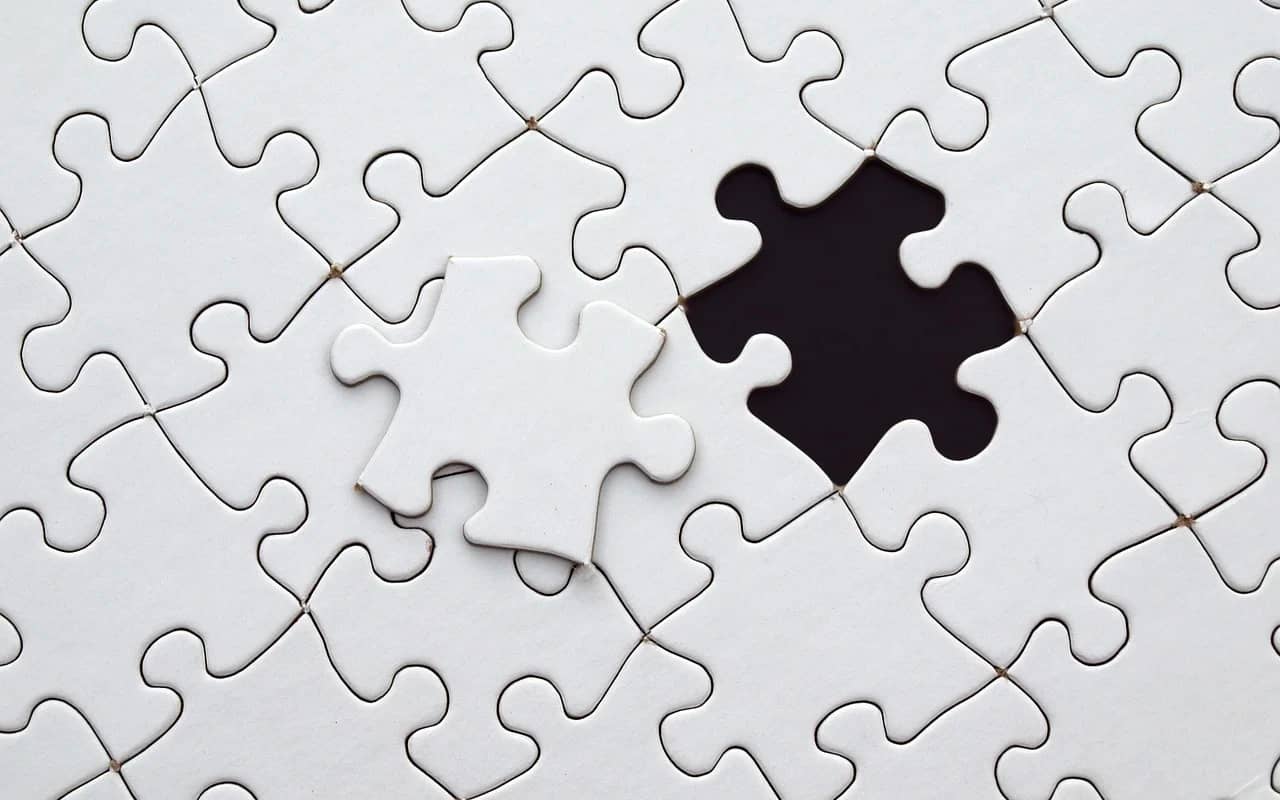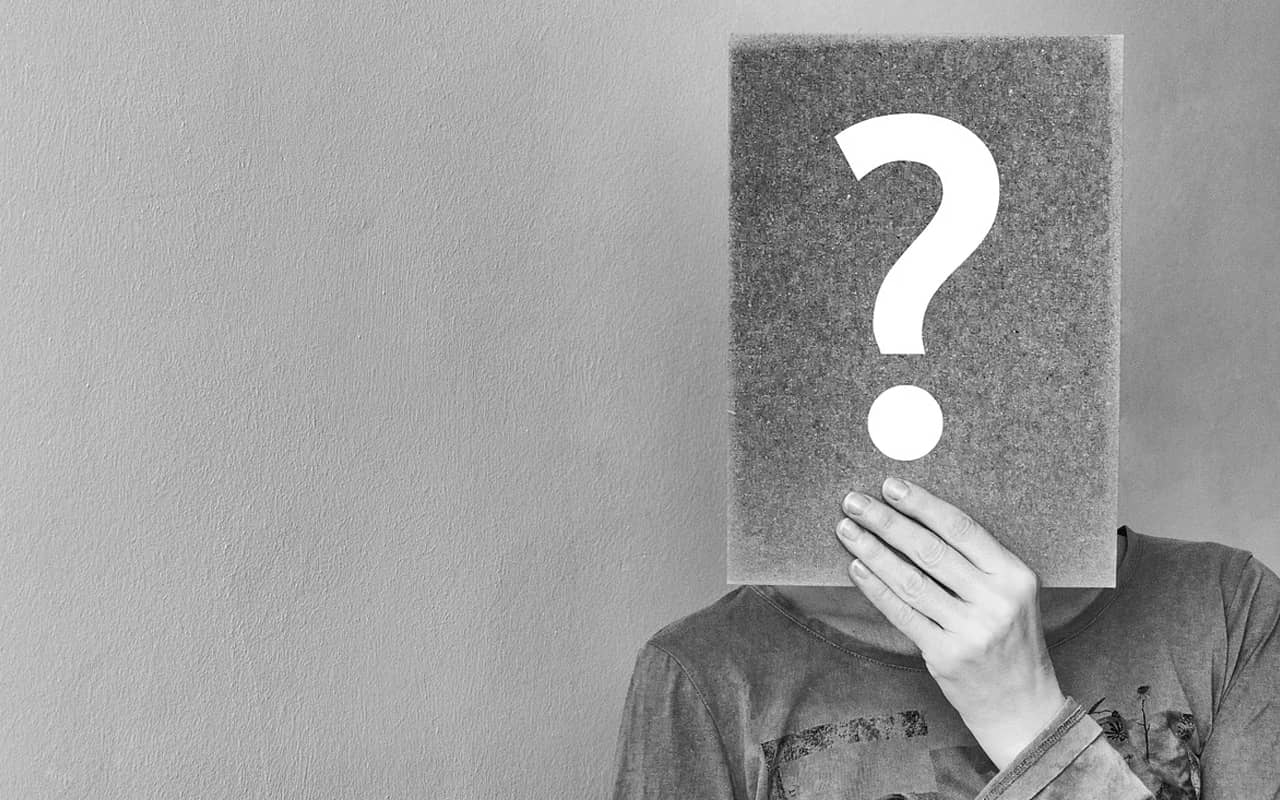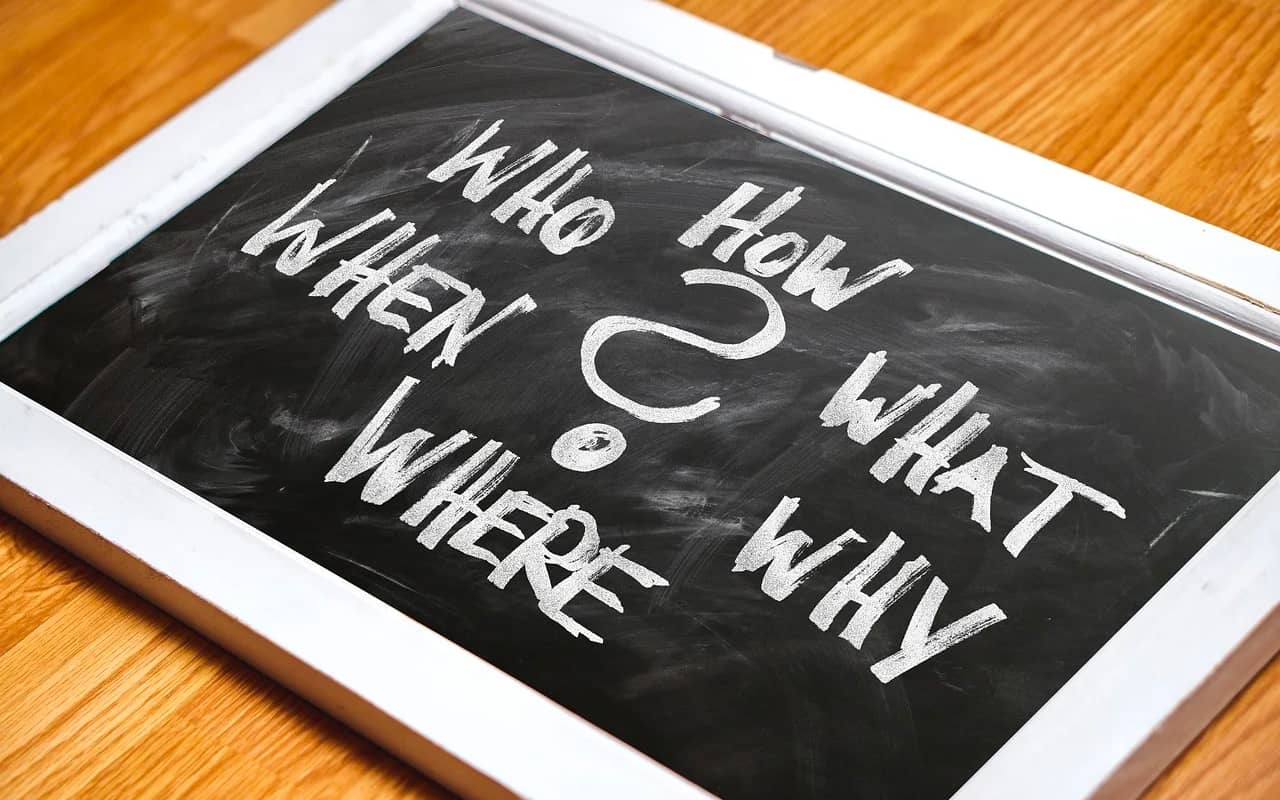Podcast: Download
Subscribe: Apple Podcasts | RSS
 Do you want to know why questioning everything is the best policy in life?
Do you want to know why questioning everything is the best policy in life?
It’s because humans are prone to error, including the smartest amongst us.
In fact, there’s a principle called “the curse of knowledge” that highlights this problem.
A popular example of how this plays out in life is in the exchanges between Dr. Watson and Sherlock Holmes.
Holmes often points out how Watson doesn’t see the simplest things simply because he doesn’t question the details enough.
It’s not that Watson isn’t a smart guy. He’s a doctor, after all. But because questioning things is such a small part of his mental activity, he misses both the big picture and the granular details.
As a result, Holmes shines as an incredibly bright individual and Watson seems rather dim, despite his credentials.
If you’d like to learn how to question things with greater frequency so you can observe the world in-depth, stick around.
In this post, we’re diving deep into why you should always question everything and different ways to do it well. Much of my suggestions are based on courses in critical thinking I used to teach during my previous career as a university professor.
Let’s begin with this infographic covering the benefits:
Why Questioning Everything Is Critical to Great Thinking
As you’ve seen on the infographic, questioning promotes understanding, drives innovation and helps you build confidence.
Even if you never get into debating others in a formal setting, you simply cannot put a price on being able to explain why you think in particular ways and substantiating your views with evidence.
But there’s also a long history to rational questioning that you’ll find helpful to know.
For example, the ancient Greeks knew that asking questions was their best bet when it came to critical thinking.
A lot of people associate questioning as a tool introduced by Plato through the Socratic dialogues.
Although it’s true that Plato used the character of Socrates to highlight the use of questions to sharpen our thoughts, inquiry is much older.
The Pre-Socratics, for example, devised what is called Eleatic Philosophy.
Parmenides of Elea, from which Eleatic Philosophy gets its name, is sometimes considered the first of the Greeks to use questions to explore the nature of reality itself.
How Questioning Removes Errors Quickly
Here’s the most important point about these philosophers:
They preferred to use logic instead of their direct senses.
And this meant using language in particular ways.
In fact, a lot of their wording boils down to a kind of math though the use of syllogisms that help with thinking logically.
Here’s an example of a typical syllogism:
“All mammals are animals. All elephants are mammals. Therefore, all elephants are animals.”
To test the validity of this statement, the philosophers would use questions that remove their senses.
It might sound silly to us today, but put yourself in their shoes for a moment.
If you were to use purely your sense of touch to assess an elephant, you could conclude that this animal is a reptile based on its leathery skin.
So, before the Greeks developed classification systems, many of which we still use today, they needed to question everything in order to rule out errors that could mislead them.
Another way to look at the questioning process is to understand the difference between abstract thinking and concrete thinking. In each of these types of thinking, you use different kinds of questions to arrive at the truth.
Finally, we need to be able to question our own most cherished ideas. I’ve done that myself often.
Consider my work on this blog. I’ve even asked whether or not the Memory Palace technique I teach actually works.
Fortunately, the science supports my teaching. But I would have missed out on learning a lot of the science if I hadn’t had the courage to ask the question.
The Dialectic Approach
Sticking with the ancient Greeks, let’s look at Plato a little further.
One of Plato’s main contributions is called dialectical thinking.
Through the use of questions, it allows you to reason effectively by producing multiple ways of looking at just about any issue or problem.
It works because you use questions to examine your thoughts and the thoughts of others before, during and after arriving at conclusions.
In other words, the process of questioning never really ends.
This process is the core of the scientific method, in which nothing is ever “proved.” Instead, we use our scientific questions to help us produce evidence that either validates or invalidates our assumptions about the world and reality.
Without being able to ask and answer questions as an ongoing process, truth fizzles up quickly. And this is why Plato’s recording of the dialogues of Socrates is such an astonishing document.
Whether Socrates is right or wrong, what matters is the freedom to debate and keep questioning things.
Other Traditions Based on Questioning Everything
Although the ancient Greek philosophers are very important, they weren’t alone in urging us to question.
The urge to question everything why as a repetitive practice is found in other ancient texts like the Upanishads.
These texts were influential in forming contemplative traditions like Advaita Vedanta.
In Advaita Vedanta, there is a process called “self enquiry” (Atma vichara).
In it, you use questions to explore reality as it appears to you.
For example, you can ask, “To whom is this experience happening?”
When you try to find the “inner I” or what some psychologists call the “ego” within the frame of your experience, you will probably struggle.
That’s because things like “I” and the notion of having an identity is fundamentally an illusion. It is one we maintain by failing to ask questions. Instead, we simply go with the flow.
Or we avoid questions out of fear, which is one of the messages you find in some religious traditions. For example, in the Book of Job, asking god to explain why suffering exists is strongly frowned upon.
The popularity of such restrictions is a bit puzzling, but a lot of psychoanalysis helps explain why they arise.
And psychoanalysis itself uses a process of questioning to help people relieve the suffering that not asking questions creates.
Psychoanalysis is an important area to explore fully because there’s a whole area called “motivated forgetting.” People sometimes forget to ask critical questions due to trauma. I cover the issue fully in my post on causes of forgetting.
The 4 Most Important Types of Questions
Before we talk about developing the habit of questioning everything, let’s quickly go through what I find to be the most powerful types of questions.
- Open-ended questions
- Challenging questions
- Clarifying questions
- Reflective questions
As you can see in the infographic above, there are example questions for each type.
The important personal characteristics you’ll want to add is:
- A personal commitment to remaining open and curious
- Careful listening
- Active reading as a discipline
- Having the courage to challenge norms, including your own memory biases
By continually asking the four main question types, you’ll naturally start to develop these characteristics and become a better person as a result.
How To Start Always Questioning Everything
If you want to commit to a life of enquiry, bravo. I’m confident you’ll find it very rewarding.
In order to get started, consider the following steps:
One: Decide To Go All In And Plan
One of the biggest problems people face when they take on a new goal is that they’re not fully committed.
That’s just not going to work when it comes to committing everything. And the reason why should be clear:
We’re talking about everything.
So if you want to question just some things, some of the time, reconsider whether or not dialectical thinking is really something for you. It’s not about dabbling.
And because it’s not about dabbling, you’ll want to plan.
For that, let’s move on to the next step.
Two: Study Inquisitive People And Their Traditions
One of the best ways to learn how to enquire deeply is to study those who have gone before you.
And a reading plan of the classic texts that are based around questioning everything is key. I’ve already mentioned a bunch from the Greek tradition, but here are some other suggestions.
Merely by reading the books and resources on this list, you should find yourself starting to question everything almost on autopilot as your brain starts mimicking the process. Reading this list in particular will make you smarter:
- Plato’s Republic
- Aristotle’s Nichomachean Ethics
- Ramana Maharshi’s Be As You Are
- Berkeley’s Three Dialogues between Hylas and Philonous
- Heidegger’s The Question Concerning Technology
- List of unsolved problems in philosophy
- Hoftstadter’s Gödel Escher Bach
- Sand Talk by Tyson Yunkaporta
- Harris’ Free Will
- Weber’s Evolving Beyond Thought
- The Victorious Mind (my book, building on Dr. Weber’s work)
There are many other books to recommend, but these are some of the ones I’ve found most useful for training my mind to ask questions that pack a punch.
And questions that help reveal answers of the highest possible value.
You can apply the study of inquisitive people to any area. It doesn’t all have to be about philosophy.
For example, I’ve found reading the questions asked by investors like Warren Buffet to be incredibly rewarding.
I’ve also made sure in the realm of investing to speak with consultants who ask me questions. One person in particular helped me think through my investing personality-type, and the questions he asked helped me make better decisions.
Long story short, he said that if I went against my psychological profile, I would have a hard time sleeping at night. I’m sure glad his questions helped me realize certain things about myself, because the relationship between sleep and memory is immense. And I need all the sleep I can get.
Three: Put Your Questions In Writing
We often resort to questioning things mentally. The burden falls completely on the mind.
However, getting our hands involved is a best practice due to the benefits of haptic memory. This form of memory involves physical touch and belongs broadly to sensory memory, which is readily exercised.
To practice questioning in writing, consider keeping a journal dedicated to this purpose.
Also, note that writing out answers to questions is part of the artistic process.
In The Successful Novelist, David Morrell shares how he has used a process of questioning to help him derive the plots of very successful novels. He uses writing to flesh out answers to specific questions that draw out realistic plot points his readers love.
As a sub-point that I think you’ll love, Morrell gets out into the field to ask his questions. Not only does researching how pilots fly by actually learning from them in their environment help him study faster.
He’s able to ask a completely different set of questions because he’s with the people he’s researching. You see things that aren’t apparent otherwise when you get out into the real world environments you’re interested in learning about.
Four: Verbalize Your Questions With Others
Just as we benefit from processing our ideas physically through writing with our hands, processing questions with our mouths is a godsend.
Think about it:
Speech science reveals that at least 100 muscles are involved in speaking aloud.
Now, not everyone has interested parties to speak with, so get this:
You can still exercise all those muscles by asking yourself questions out loud.
I do this often and feel no shame in it. It’s a purposeful verbalization of my questions that not only generates better answers, but sometimes helps me improve the questions themselves.
This happens because I hear how sometimes I limit my wording, or miss the point. I cannot imagine perceiving these deficiencies in any other way.
Five: Review Everything
Re-reading books (especially philosophy books) or re-taking courses is one of my favorite strategies for asking better questions.
In fact, at the time I’m writing this post, one of my projects involves trying to re-read as much of my university syllabi as possible from my first year to 2009 when I completed my Ph.d.
It’s a massive project, and I don’t pretend that I’ll be able to cover everything.
However, I’ve already noticed with the books that I’ve re-read so far that the quality of my questions have improved. They’ve done so by virtue of a kind of guiding meta-question:
- Who was I when I first read these books?
- What did I feel when I was reading them?
- Where was I? (Both physically, emotionally and in terms of my street smarts?)
- What did I conclude after reading them?
These questions now have a powerful pair:
- Who am I now as I read them again?
- What do I feel now?
- Where am I?
- What do I conclude now?
- What are the notable differences between then and now?
Although you might not take your re-reading strategy to the same lengths I am, the benefits of comparing and contrasting your experiences based on these questions is huge. I personally feel that this is one of the most strategic ways to enquire into many aspects of reality at the same time, so hope you’ll give it a try.
Question Everything Within Reason
Although I’ve presented questioning everything as a beneficial practice, moderation and discernment are required.
I imagine that you, like me, ultimately want freedom in life. This means that we can’t become a slave to needing to question everything all the time. Frankly, I doubt anyone could, even if they tried, certainly not without making themselves sick.
Rather, enquiry is best deployed as a constant practice. This means that you work on it consistently, a mental strength initiative no different than the physical strength programs we apply to our bodies.
This means that some planning will be useful, and self-monitoring to make sure we aren’t going overboard.
And the best way to do that?
Using questions about how we’re going about questioning things, of course!
If you’d like a simple course that will help you remember to keep questioning yourself within reason, give this Free Memory Improvement Kit a try:
And let me know:
What questions are you going to ask yourself next?
Related Posts
- Why Is Critical Thinking Important? 5 Compelling Reasons
Want to know why critical thinking is important? The answer actually isn't obvious. But after…
- How to Memorize Poetry Quickly & Maintain It For Life
Memorizing poetry is one of the most important ways to exercise your brain, grow your…
- Arthur Worsley On Getting Traction And Discovering Your Why
Arthur Worsley shares his knowledge about finding your why and getting tracktion. His tips are…














